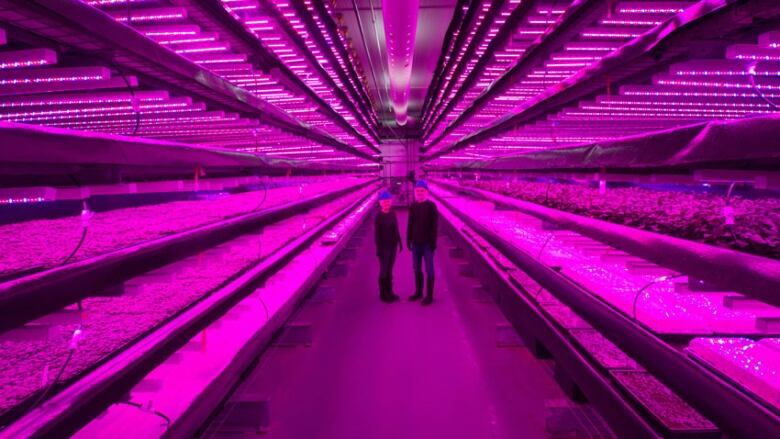Utopian Dinner Table: How to feed the world in 100 years

**This episode originally aired January 10, 2019.
One hundred years from now, the planet will have 3 billion more people to feed. Global food security expert Evan Fraser considers possible solutions by contrasting two distinct visions of utopia one found by embracing science and technology, and the other by overthrowing capitalism.
"Food will be harder and more expensive to produce in the future," says Evan Fraser, Canada Chair in Global Food Security at the University of Guelph, where he also directs theArrell Food Institute, adding that we will need to produce 70 per cent more food within a generation that's more than what we've produced in the past 10,000 years put together.
Some turn to technology and GMOs as the solution. Others turn to a complete overthrow of industrialized agriculture.Evan Fraser considers both in this episode.
I am confident that we have all of the technology that we need to feed 10 billion people. I am not confident that we will use that technology as effectively as we can largely because of people's attitudes.- Nina Fedoroff
Salvation through technology
Molecular biologist Nina Fedoroff argues our focus should stay on developing technology that can create more food with less labour.
"You can even imagine the farm of the future being virtually completely operated by machines and people tending the machines and making sure that they work right machines and computers," says Fedoroff.
Vertical farms like one that is being built just outside Guelph, Ontario is a good example of what Fedoroff envisions.
The 50,000 square foot facility produces lettuce and other greens, in half the time of conventional fields and with no natural light. The 9-level farm is fully automated, recycles 97 per cent of its water, and uses LED lights specific to the plants' needs.
"We give our plants plant heaven," says Gregg Curwin, founder and former president of TruLeaf.

A New World Order
Let's be clear there is no such thing as a sustainable industrial agriculture systemWhat's required is a fundamental shift away from capitalism.- RajPatel
Raj Patel is the author of Stuffed and Starved: The Hidden Battle for the World Food System. He argues for an overthrow of our social and economic systems to halt the growing disparity between haves and have-nots. While two billion people are overweight, and 800 million are malnourished, Raj Petel calls for a return to local sustainable agriculture.
"The market has some very simple rules," says Patel. "If you're able to afford to eat you can eat what you like. If you're not able to afford to eat you go hungry or you get you know the sort of cheapest food that's available. A world that isn't like that requires the ending of industrial agriculture and the corporations that profit from it industrially."
Getting involved in local non-profit community farms is one way to work around the industrial food system.

Black Creek Community Farmin Toronto's Jane and Finch neighbourhood covers 8 acres. Volunteers can cultivate their own plots of land or contribute to the community plot.
"If we rely on our own local production, we're not dependent on fluctuating price of oil, we're not dependent on a middleman," says Mildred Agsaoay, who coordinates the Mom's Program and other outreach programs at Black Creek Community Farm.
Guests in this episode:
- Nina Fedoroffis a microbiologist and past president of the American Association for the Advancement of Science. She is also therecipient of the National Medal of Science, and former advisor to U.S. Secretary of StateCondoleezza Rice.
- Gregg Curwinis an entrepreneur, and former president and CEO of TruLeaf vertical farms.
- Leticia Deawuois the Director of Black Creek Community Farm. Other guests from the farm include Mildred Agsaoay who runs the Mom's Program, along with participants Marlina Rodrigues and Maria Pagila.
- Raj Patelis research professor at the University of Texas at Austin. He is also the author of Stuffed and Starved: The Hidden Battle for the World Food System, and co-author of A History of the World in Seven Cheap Things: A Guide to Capitalism, Nature, and the Future of the Planet.
**This episode was produced by Nicola Luksic.












_(720p).jpg)


 OFFICIAL HD MUSIC VIDEO.jpg)
.jpg)



























































































